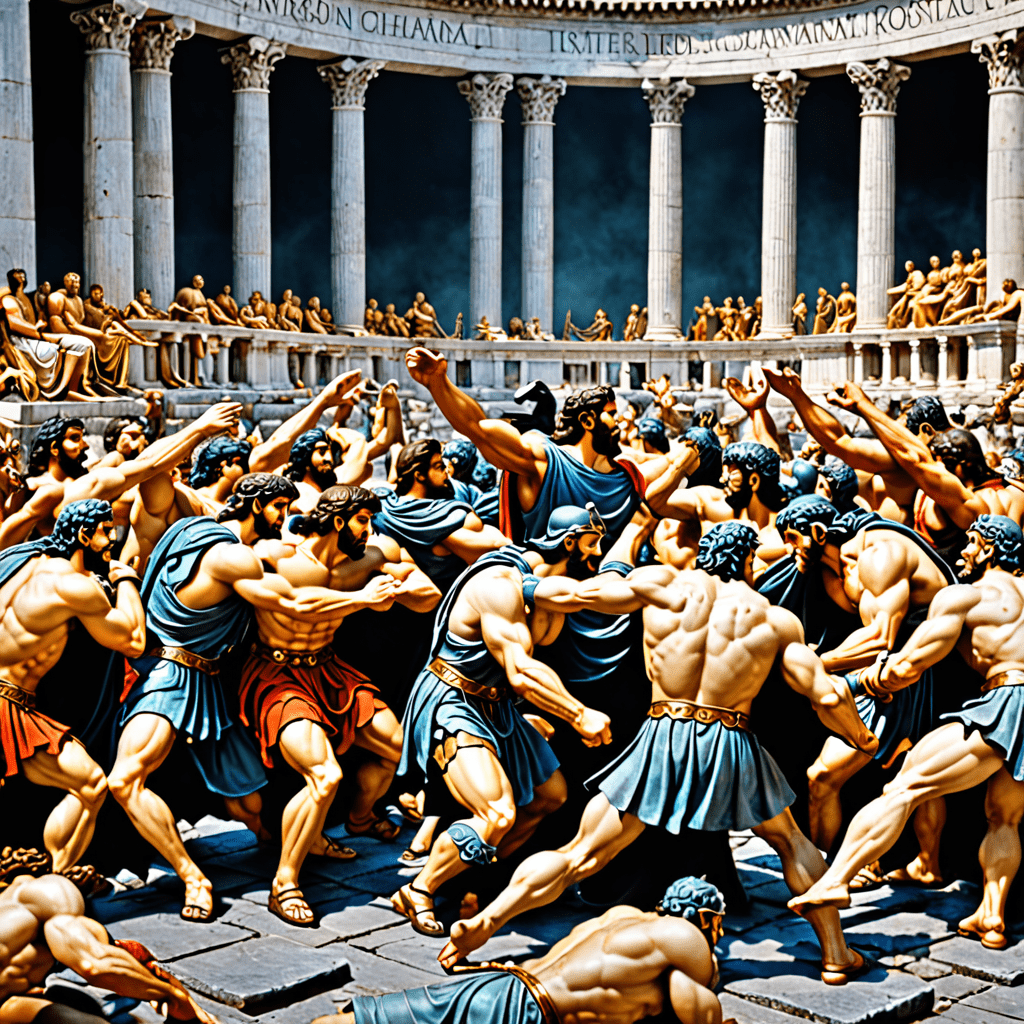The Strategic Gods of Roman Mythology and Their Exploits
In Roman mythology, gods and goddesses held various roles and domains, reflecting human attributes and emotions. Among the divine figures, there were gods renowned for their incredible strategies and tactics in battles
and conflicts.
1. Mars – The God of War and Strategic Warfare
Mars, the Roman counterpart of the Greek god Ares, was revered as the god of war, showcasing mastery in strategy and tactics on the battlefield. Romans prayed to Mars for strength and victory in warfare, believing in his
guidance and protection during times of conflict. He was often depicted with a spear and shield, symbolizing both offensive and defensive warfare strategies.
2. Minerva – The Goddess of Wisdom, Strategy, and Crafts
Minerva, equivalent to the Greek goddess Athena, was not only associated with wisdom and craftsmanship but also revered for her keen strategic insights. Known for her intellect and foresight, Minerva was often called upon
for counsel in times of war and strategic decision-making. She represented clever tactics and strategic planning in conflicts.
3. Quirinus – The God of Courage and Tactical Resourcefulness
Quirinus was a Sabine god later identified with Mars in Roman mythology. He symbolized courage, vigilance, and tactical resourcefulness in the heat of battle. Romans viewed Quirinus as a protector and guide in war,
assisting warriors with bravery and strategic acumen during engagements.
4. Bellona – The Goddess of War and Strategic Defence
Bellona, the Roman goddess of war, represented the strategic aspect of defense and protection in conflicts. She embodied the planning and execution of defensive strategies in battles, ensuring the safety and security of
Rome and its people. Romans sought Bellona’s favor for tactical prowess in defensive warfare.
FAQ about Roman Mythology: Gods of Strategy and Tactics
Who are the key gods of strategy and tactics in Roman mythology?
In Roman mythology, the key gods associated with strategy and tactics are Minerva (Athena in Greek mythology) and Mars (Ares in Greek mythology). Minerva is the goddess of wisdom, strategic warfare, and sponsor of arts and trade, while Mars is the god of war, often revered for his strategic prowess in battle.
How did Minerva exhibit her strategic abilities in Roman mythology?
Minerva was highly esteemed for her strategic prowess, as seen in her guidance of warriors in battle, offering strategic advice, and fostering wisdom and intellect to plan and execute effective tactics in warfare. She symbolized the strategic aspect of war and protected those who fought for a just cause.
What role did Mars play in tactics and strategies within Roman mythology?
Mars, known as the god of war, was revered for his role in inspiring bravery, courage, and tactical acumen on the battlefield. He was believed to influence the outcomes of conflicts through strategic planning, military strength, and the granting of victories to those who demonstrated skillful tactics in war.
How were Minerva and Mars worshipped in relation to strategy and tactics?
Minerva and Mars were worshipped through various rituals, temples, and offerings dedicated to seeking their guidance and blessings





